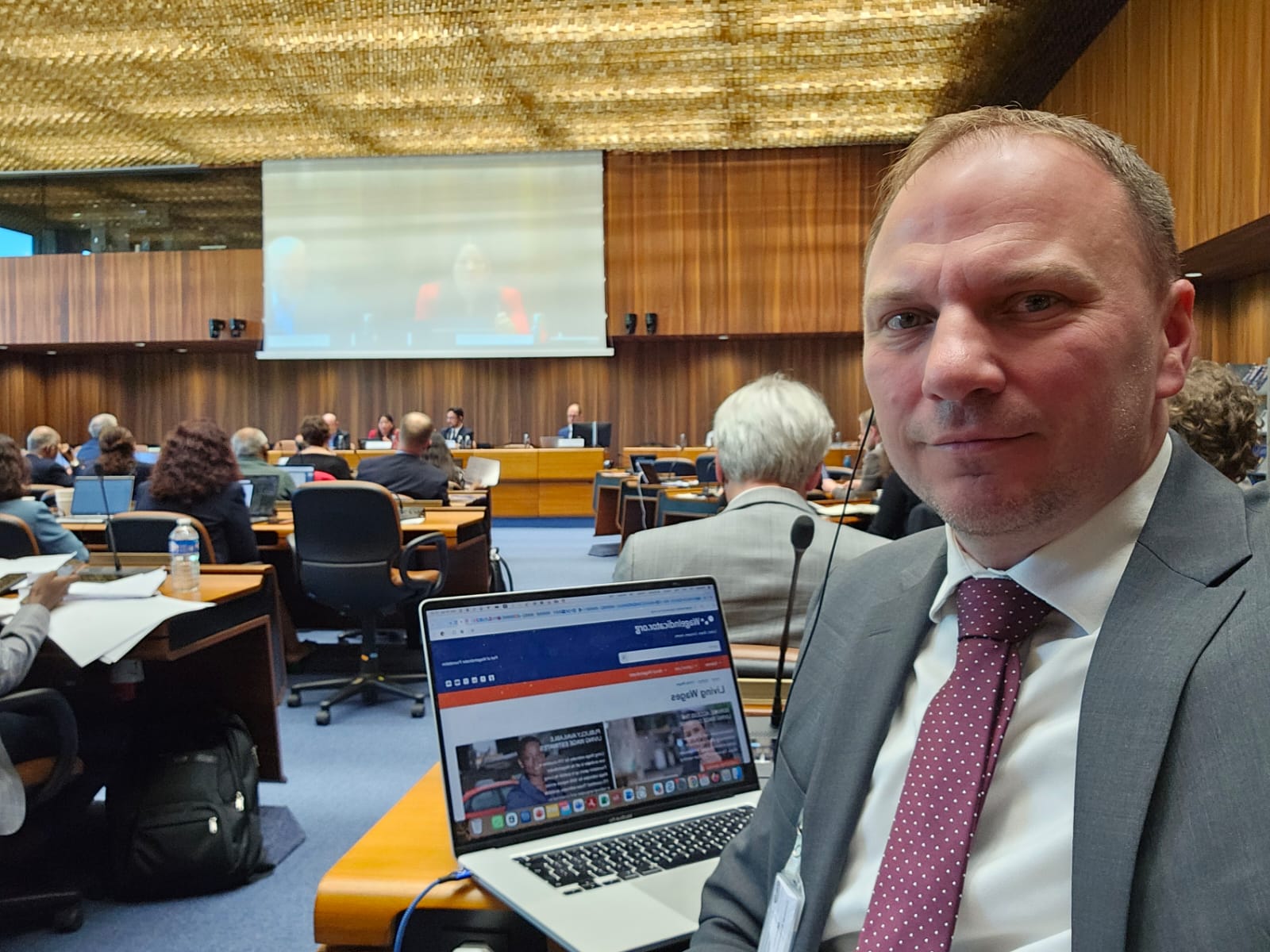News
CELSI joined a global event on Living Wages organised by the International Labour Organization in Geneva
CELSI joined a global event on Living Wages organised by the International Labour Organization in Geneva
Published on May 6, 2025

On April 28–29, CELSI Scientific Director Martin Kahanec and partners from the WageIndicator Foundation participated in an international conference on Operationalizing Living Wages, organised by the Global Coalition for Social Justice of the International Labour Organization (ILO) and held in Geneva.
Opened by Sukti Dasgupta, Director of the WORKQUALITY Department of the ILO, this two-day event featured panelists and speakers who elaborated on the principles for estimating living wages, the importance of considering economic factors and the root causes of low pay, the role of wage-setting institutions (minimum wages and collective bargaining), and the perspectives of private actors and multistakeholder initiatives.
As part of a global network of research institutes and universities contributing to the WageIndicator Foundation’s Living Wage calculations for 175 countries and over 3,000 regions, CELSI plays a key role in advancing income adequacy metrics.
At the conference, Martin Kahanec emphasized that the coexistence of multiple living wage benchmarks — such as those developed by WageIndicator — should not be seen as a weakness but as a strength, enabling transparency, responsiveness to local contexts, and practical policy action.
Through its scientifically grounded and locally validated methodology, WageIndicator — with contributions from CELSI and its network of partners — provides robust living wage estimates that help advance income adequacy and decent living standards globally.
“Our analysis shows that living wages align more closely with the threshold for a minimum income sufficient for a decent standard of living than minimum wages and other adequacy standards, offering policymakers, researchers, employers, and global institutions a robust tool for evaluating and improving wage policies,” underscored Kahanec.